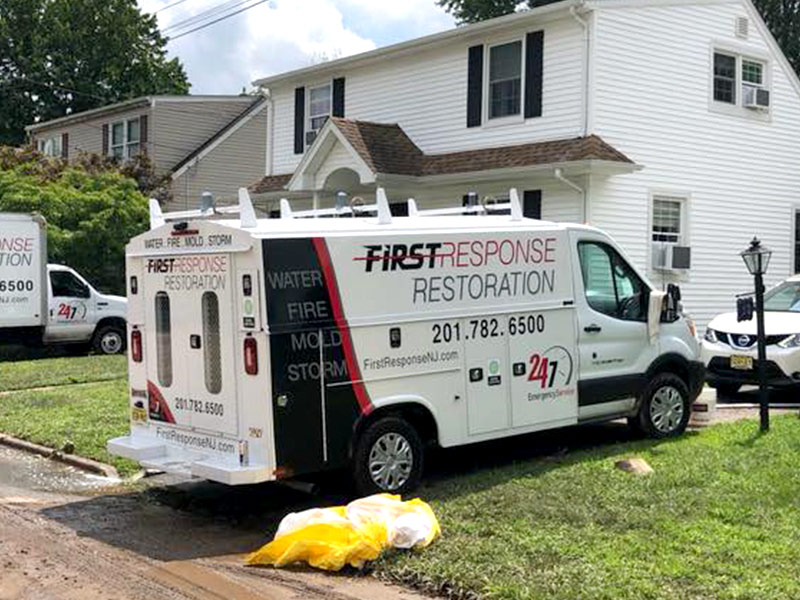What is the first thing I need to do?
Immediately call First Response Restoration at 201-782-6500. Insurance carriers require property owners to start the drying and restoration process as soon as the problem is realized to prevent further damage.
Do I need to get my insurance company approval before starting the drying process?
We immediately respond and dispatch our emergency technicians to extract the water and set up drying equipment. We can then assist our customers in reporting the loss to the insurance carrier and file the claim.
Can I choose First Response Restoration or must I use the insurance company preferred vender?
Under the law, it’s your right to use the service company of your choice. Insurance companies can only recommend a vender to use. Some vendors have agreements with the insurance companies to charge certain prices and handle water losses in a way that may not always be in the customer’s best interest.
How is the pricing done for the drying process?
We use standardized pricing for the industry. The computer estimating pricing program is the same one used by your insurance company. We will explain to the claim adjuster what has been done up to that point, and then get an agreement authorization.
How will we know when everything is dry?
We use high tech moisture meters that are designed to specifically measure for proper moisture and temperature.
How long will the drying process take?
Typically it takes an average of 2 to 5 days. If the property has been exposed to water for a long period of time it may take 4 to 7 days.
Why do you have to check the equipment and the property so often?
To make sure we are getting proper drying, it may mean that moving, adding or removing equipment is necessary. The moisture levels and temperature readings are part of the process.
Can I stay in my home during the drying process?
Most often you can stay in your home depending on the areas that are affected. It is paramount that the drying equipment remains on throughout the process despite the increased noise and “muggy” or extra dry feeling it may create. You may want to consult with your insurance company about additional living expense coverage.
Why does the house smell so bad?
It is not unusual for the humidity in your home to double or triple because of the damage from water. The sour or rancid odor comes from microbial growth in moist and/or warm conditions but should dissipate as soon as the drying is complete.
What do you do to prevent mold or bacteria from forming?
The technician will treat all affected areas with a disinfectant that is designed to destroy and prevent the development of microbial amplification in the future.



